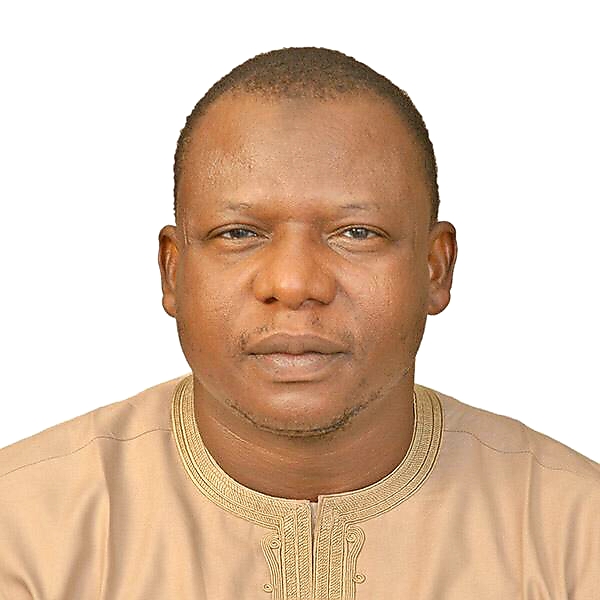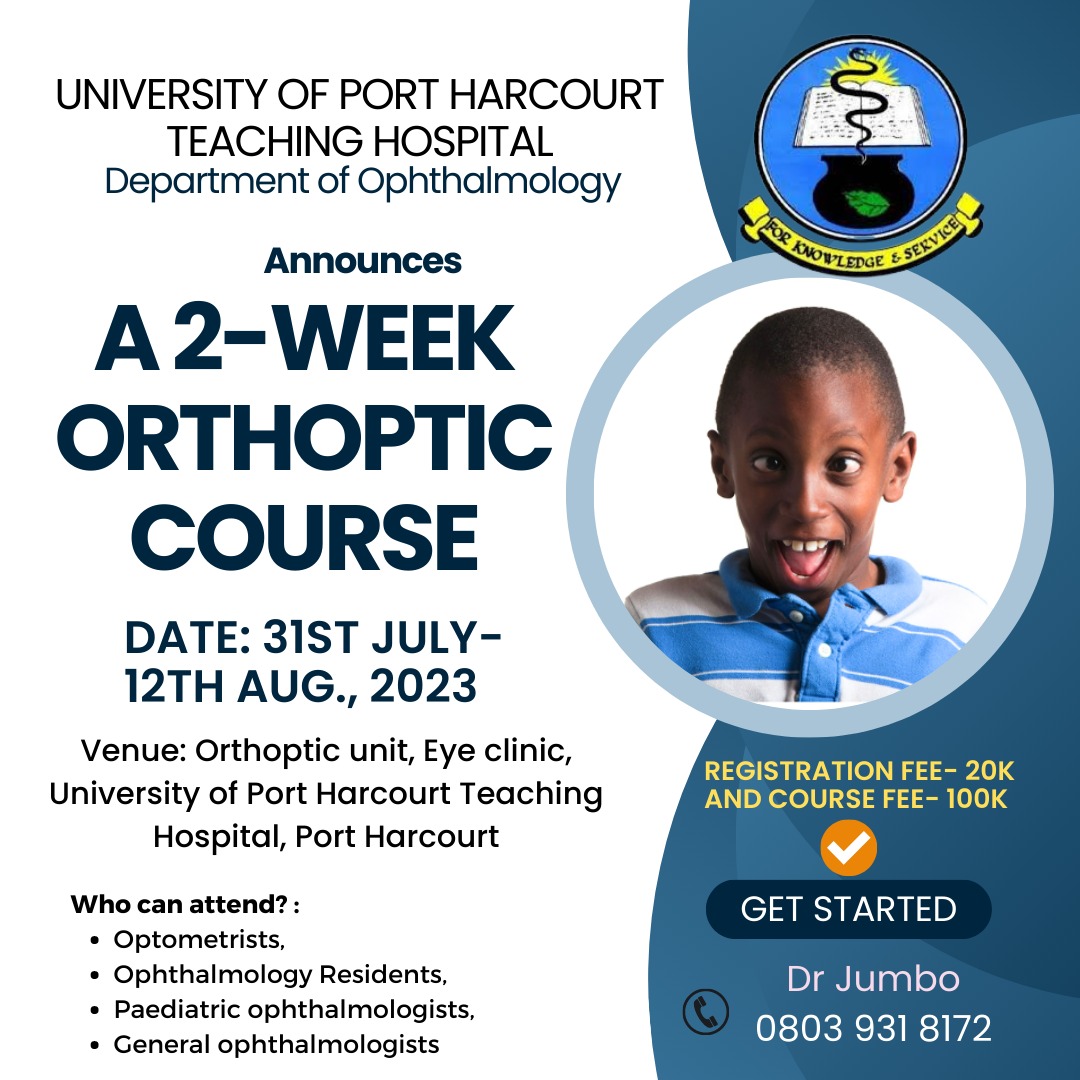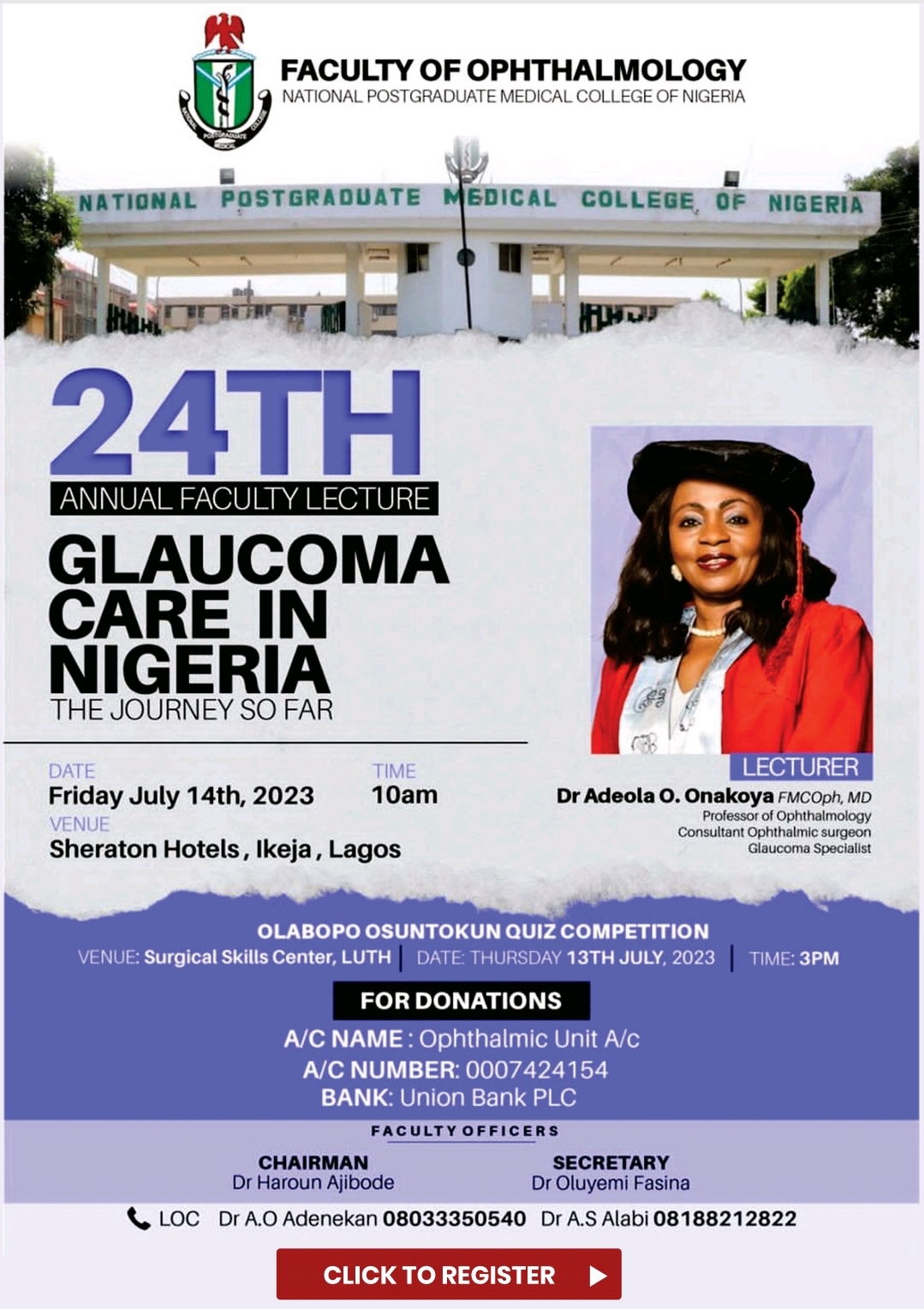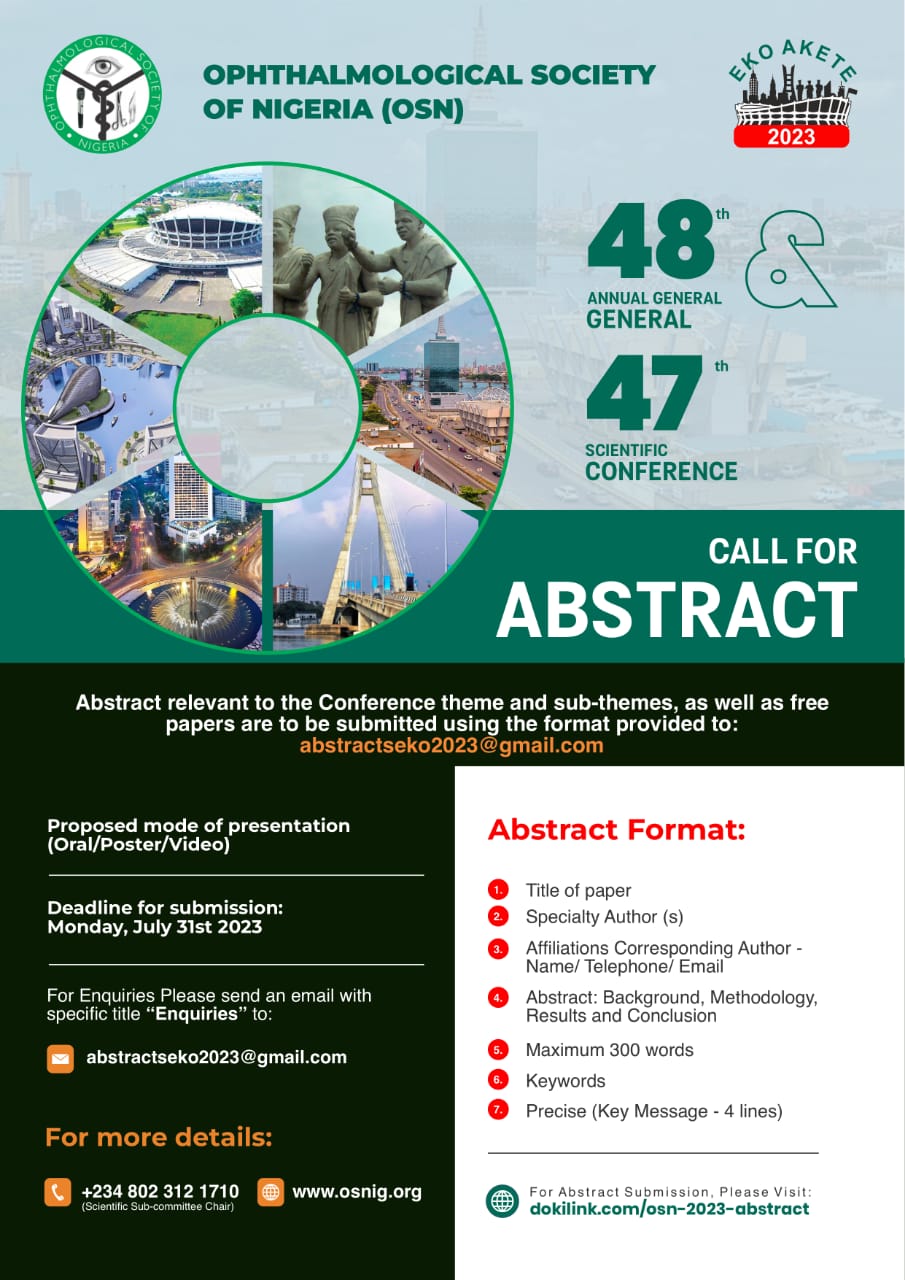I have seen many people with glaucoma in the course of my career but none has touched me emotionally like Kasim’s. Kasim is a 45-year-old successful banker who rose through the ranks to become a branch manager in one of the first-generation banks in Nigeria. He is hard-working, intelligent and ambitious. There is never a dull moment with him. His versatility on national issues and his enthusiasm to engage people in intellectual discourse brought us closer as we always discuss a myriad of issues bordering on the banking sector, customer satisfaction, economy and stock market.
I had not seen Kasim for some time because I had been out of the country for almost a year. I was therefore shocked to discover that the cheerful Kasim of last year is now blind and cannot navigate independently. His glaucoma had rapidly progressed and had wiped out almost all his vision. His dreams, ambitions and aspirations have been abruptly brought to a standstill. What a disease!
“Doctor, what causes this glaucoma?" he asked.
"Kasim", I called his name, before I proceeded to provide some explanation. Primary Open Angle Glaucoma (POAG), the commonest type of glaucoma, is an enigmatic disease. A lot of its attributes are shrouded in mystery. We don't know yet what the exact cause is. However, we know it is discriminatory and more commonly affects people whose relatives have the disease, the elderly, shortsighted people, people of African descent and people who have thin central corneas (i.e. the front surface of the eye)".
He seemed to be getting the message judging from his expression.
"Hmmm. My grandmother was blind before her death," he said.
Then he asked further, "But why do some people go blind faster than others?"
"Glaucoma progresses at different rates in different people. It generally progresses faster in Africans, older people, people with high initial eye pressure and people who have thin corneas," I replied.
"Furthermore, people who don't adhere to their medications or who default from their hospital appointments stand a higher risk of getting worse".
"Doctor, before I forget, when is that your yearly glaucoma week?" he asked.
"It is almost here - the second week of March every year. It is an initiative between World Glaucoma Association and World Glaucoma Patient Association and has been on for the past ten years. The idea of the week is to create awareness and to advocate for glaucoma patients. You need to mobilize all your relatives to take advantage of the week to have their eyes examined. Additionally, we need to have committed patients like you to rejuvenate our glaucoma support group. The group is supposed to be a platform for interaction among patients and a powerful tool for advocacy", I explained at length.
"Doc! I have to go," Kasim said.
"Alright Kasim, have a nice day. Remember, it is glaucoma week, encourage your people to have their eyes checked", I added as I saw him off.
#WGW2020 #Glaucoma #BIG #BeatInvisibleGlaucoma
Dr Abdullahi Sadiq Mohammed
Glaucoma Specialist, National Eye Centre, Kaduna
07.03.2020




